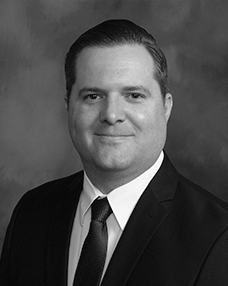Incapacity and Advance Medical Directives
At some point in your life, you may lose the ability to make or communicate responsible health-care decisions for yourself. Without directions to the contrary, medical professionals are generally compelled to make every effort to save and sustain your life. Depending on your attitude toward various medical treatments and your views on the quality of life, you may wish to take steps now to control future health-care decisions with one or more advance medical directives.
What Is an Advance Medical Directive?
The laws of your state may allow you to adopt one or more advance medical directives to manage your future medical care. There are three main types of advance medical directives: (1) a living will, (2) a durable power of attorney for health care, and (3) a do-not-resuscitate order. Each has unique characteristics and is useful under specific circumstances. You may find that one, two, or all three advance medical directives are necessary to express all your wishes regarding medical treatment.
Living Will
A living will is a legal document that specifies the types of medical treatment you would want, or not want, under particular circumstances. In most states, a living will takes effect only under certain circumstances, such as a terminal illness or injury. Generally, one can be used solely to decline medical treatment that "serves only to postpone the moment of death."
Durable Power of Attorney for Health Care/Health-Care Proxy
A durable power of attorney for health care (DPAHC), also known as a health-care proxy, is a legal document in which you appoint a representative to make medical decisions on your behalf if you become unable to make or communicate them yourself. It allows you to exercise control over your health care through this representative, who will have the authority to make most medical care decisions for you.
Incapacity and Advance Medical Directives

You may want to appoint such a representative to act on your behalf. If you don't, medical professionals will generally be compelled to do everything possible to save and sustain your life. A DPAHC can resolve conflicts and help ensure that your choices regarding medical treatment are respected. A DPAHC may not be practical in an emergency — your representative must be present to act on your behalf.
Do-Not-Resuscitate Order
A do-not-resuscitate (DNR) order is a legally binding order, signed by both you and your physician, that directs medical personnel not to perform cardiopulmonary resuscitation (CPR) or other invasive procedures on you if you stop breathing or your heart stops beating. A DNR is the only advance medical directive specifically intended for use in an emergency. There are two types of DNRs: One is effective only while you are hospitalized; the other is used by people outside the hospital. ID bracelets, MedicAlert® necklaces, and wallet cards are some methods of noting DNR status.
More to Consider
- The laws on advance medical directives vary considerably from state to state. If you spend a significant amount of time in a state other than where you live, you may want to research that state's laws as well.
- Review your advance medical directives periodically to ensure they reflect your current wishes and attitude.
- Discuss your advance medical directives with appropriate persons (perhaps your doctor, your DPAHC representative, your family, and your friends).
- If you have multiple advance medical directives, make sure your instructions are stated consistently throughout. In many states, the most recent document prevails in case of a conflict.
Content Prepared by Broadridge Investor Communication Solutions, Inc for financial advisor use. This information, developed by an independent third party, has been obtained from sources considered to be reliable, but Raymond James Financial Services, Inc. does not guarantee that the foregoing material is accurate or complete. This information is not a complete summary or statement of all available data necessary for making an investment decision and does not constitute a recommendation. The material is general in nature. Past performance may not be indicative of future results.
Investment products are: not deposits, not FDIC/NCUA insured, not insured by any government agency, not bank guaranteed, subject to risk and may lose value. Raymond James financial advisors do not render legal or tax advice. Please consult a qualified professional regarding legal or tax advice.


 Maggie Slivinski
Maggie Slivinski Steve Corbo
Steve Corbo Alexandra Rao
Alexandra Rao Alexa Comey
Alexa Comey Gene Donato
Gene Donato Jack W. Kennedy III, CFP®, AAMS®
Jack W. Kennedy III, CFP®, AAMS® Henry (Hank) J. Schroeder, CFP®
Henry (Hank) J. Schroeder, CFP® Diane Gallagher
Diane Gallagher Scott Bernstiel
Scott Bernstiel Chrissy Carpenter
Chrissy Carpenter David Strout
David Strout Keith R. Hering AAMS®, CRPS®, CIMA®
Keith R. Hering AAMS®, CRPS®, CIMA®  Marjorie Onuwa
Marjorie Onuwa